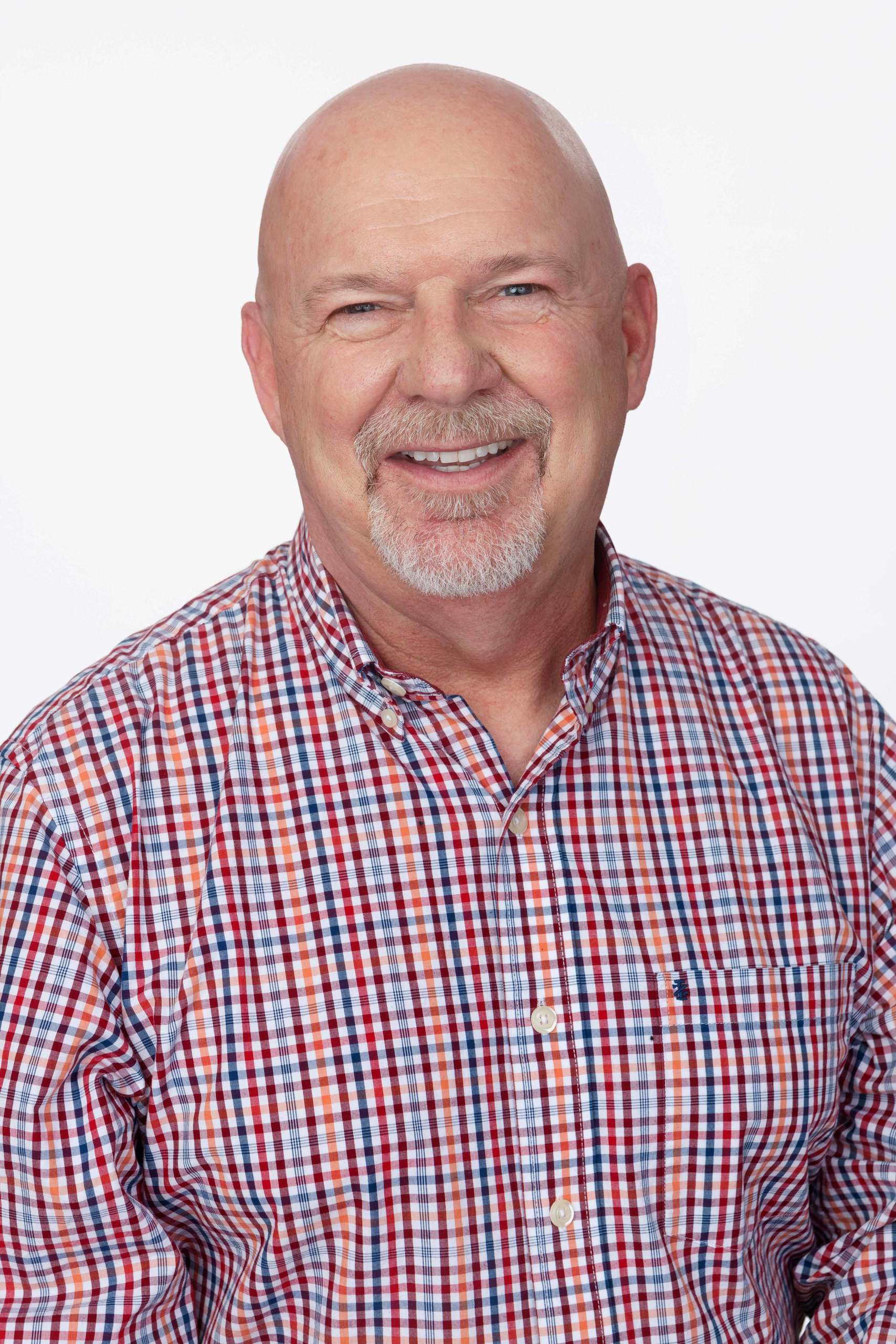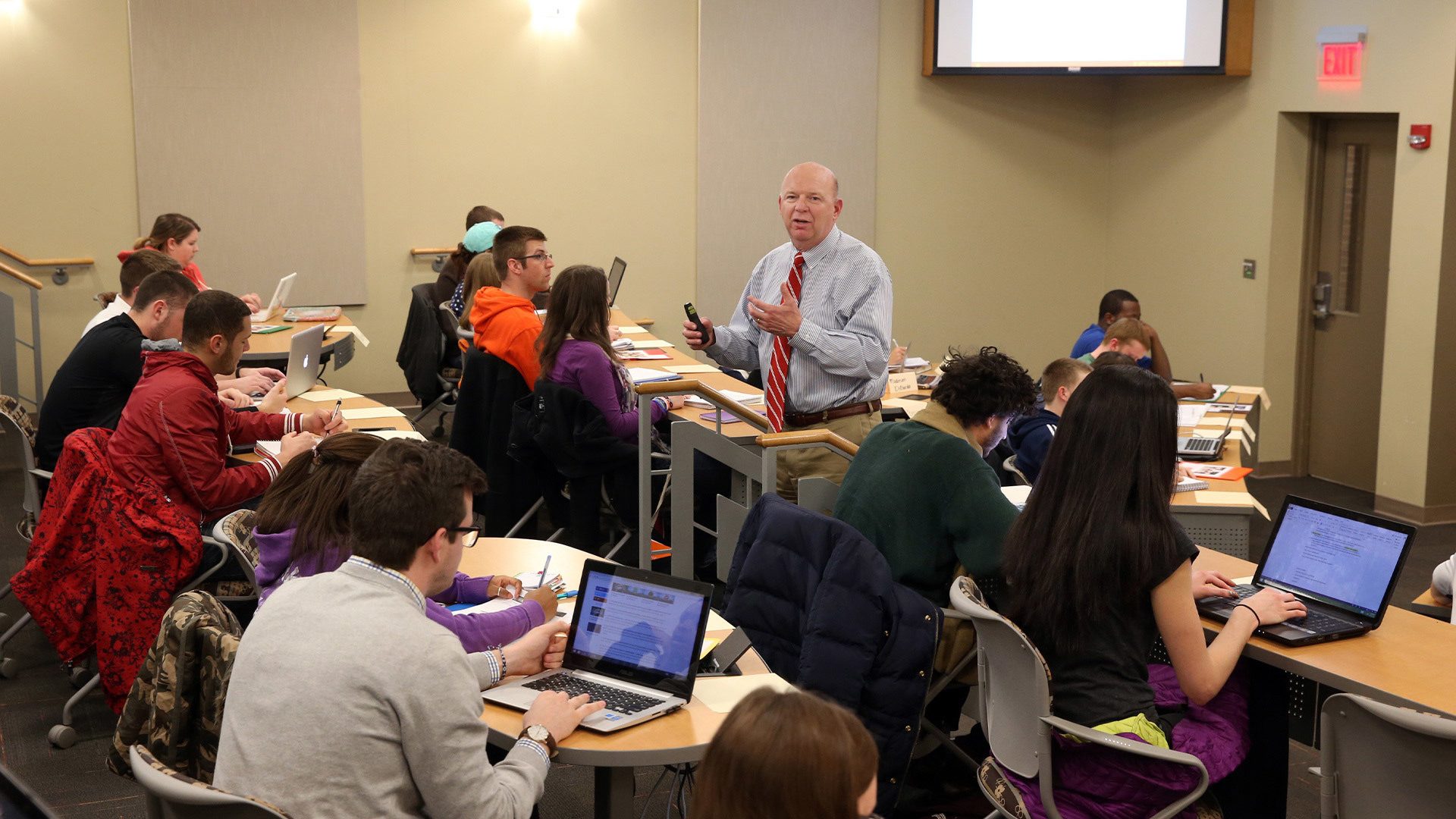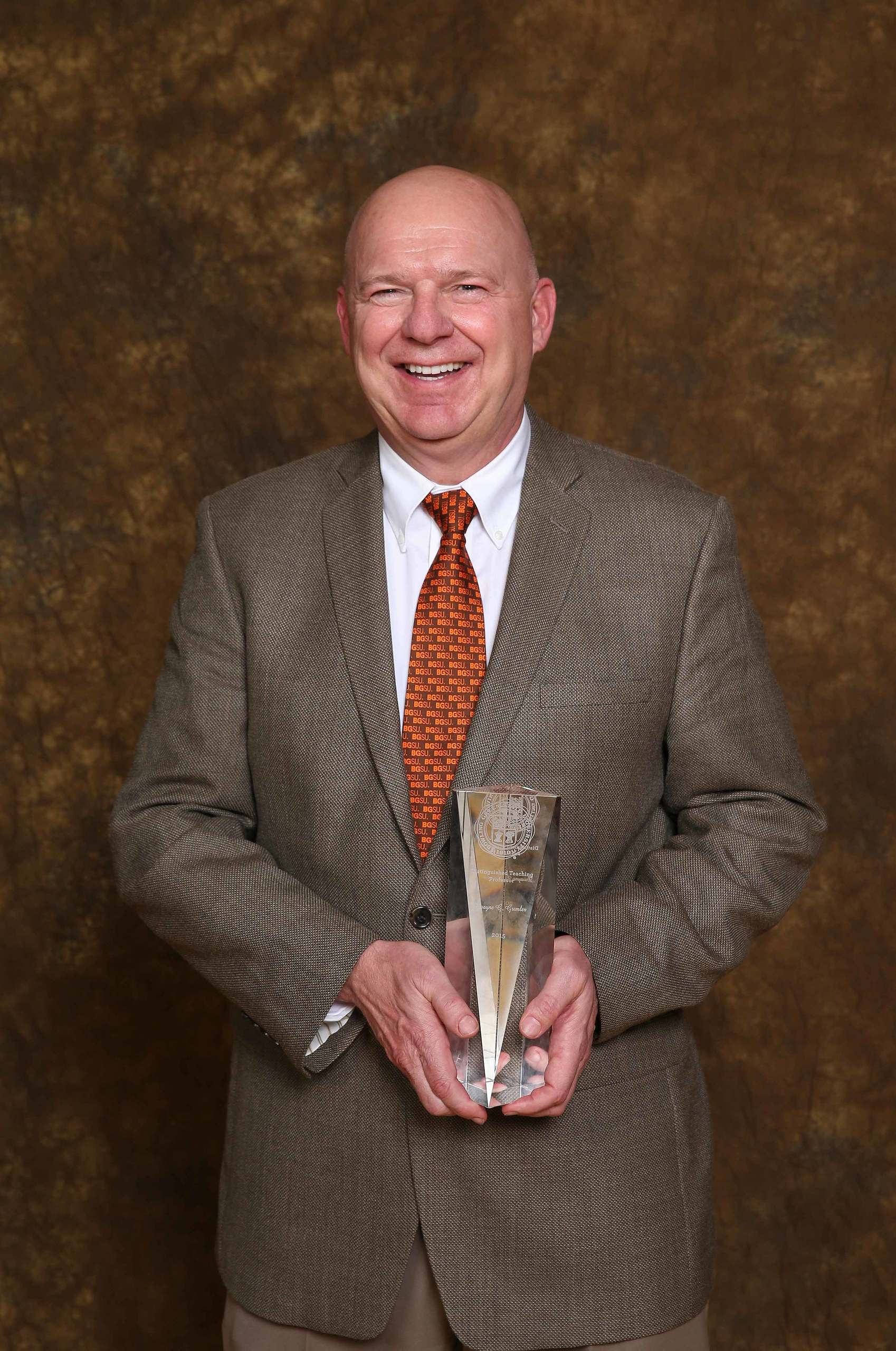
10,000 citations strong: How a dissertation topic defied skepticism and redefined marketing narratives
Estimated Reading Time:
BGSU Distinguished Research and Teaching Professor Dr. Dwayne Gremler trailblazed the digital age in a quest to decode online word-of-mouth communication.
While considering his dissertation topic some 30 years ago, a certain Ph.D. candidate, now professor at Bowling Green State University, was interested in researching word-of-mouth communication, but he ran into a stone wall.
A senior professor offered this terse rebuke: “Word-of-mouth is dead. Move on to a different topic.”
After quietly and respectfully disagreeing, the allure of examining the power and potential in this area of the exchange of information remained a topic of interest, if the right project presented itself.
“I thought the topic of word-of-mouth communication was intriguing,” said Dr. Dwayne Gremler, a professor of marketing who has been named as both BGSU Distinguished Research Professor and BGSU Distinguished Teaching Professor.
He found another route to complete his Ph.D. studies, but his interest in researching word-of-mouth persisted, even as the primary focus early in his career centered on other issues.
The growth of the internet changed word-of-mouth communication, which is “the informal spread of information, opinions and recommendations about a product, service or brand from one person to another.” This communication morphed from a casual conversation in the breakroom at work or a brief exchange over the hedgerow with a neighbor into something that could involve thousands or millions of other individuals.

After his own research on the topic, Gremler was invited about 25 years ago to be part of an extensive study led by Professor Thorsten Hennig-Thurau in Germany. Their research was published in 2004 in the Journal of Interactive Marketing, and it has proven to be groundbreaking, at a minimum.
The research has been cited more than 10,000 times and is regarded as a foundational element in the study of the digital communication and marketing landscape. It is the most cited work among all research about word of mouth and consumer communication.
Their collaborative effort looked at what eventually would be called electronic word-of-mouth communication - or EWOM. Gianfranco Walsh, another German professor, along with Kevin Gwinner, a marketing professor from Kansas State, were also part of the team.
The four scholars came together to examine what prompted people to share their opinions online. They collected data from an online sample of more than 2,000 German opinion-platform users who had previously written comments about products they had experienced.
As the research ideas, drafts of papers and exchange of information zipped back and forth across the Atlantic via the internet, a scholarly document titled “Electronic word-of-mouth via consumer-opinion platforms: What motivates consumers to articulate themselves on the internet?” eventually was generated by the group.
“The results revealed that the motivation for providing such comments was social (being an active part of a community and concern for those consumers who would read the reviews), intrinsic (self-expression) and extrinsic (rewards by the platform) incentives,” Gremler said.
Gremler said the two American professors were called on to provide additional insight into the research, plus they had experience with the publication process needed to get the study published in a U.S. journal.
The BGSU professor said he and his co-authors were fortunate to address the topic at the same time the use, reach and capabilities of the internet were experiencing explosive growth.
“I think in part it was a timing issue, since had the research been four or five years later, someone else might have beaten us to the punch,” he said.
The paper was not an immediate hit, but researchers around the globe eventually found that the work offered an extensive examination of a topic few others had visited.
“Once the momentum started, since we came along early on and our research had started the conversation, others have used our work and have built on that,” he said. “It certainly has surprised us that interest in our research has grown exponentially, especially in recent years. It is surprising to me it is still being heavily cited.”
Gremler, who joined the BGSU faculty in 2000, said the German-American research team was able to document the early stages of a paradigm shift that continues to grow as it cascades across the globe. Word-of-mouth in the comment and review sections of company websites, as well as crowd-sourced entities such as Yelp, have proven to be a game-changer.
“Historically, word-of-mouth was one-on-one, or one-on-three, and consumers had very little power,” he said. “What has changed with the internet is the power has shifted to the consumer. In a matter of seconds, someone sitting on a flight with their phone can capture a guy being hauled off an airplane, and within very little time a video can be sent out and shared with hundreds, thousands or millions of people.”

His interest in word-of-mouth communication began in the late 1980s before his time in academia, while Gremler was working for a large corporation in Phoenix. The company had an in-house communication network called “Forum” that was a forerunner to social media. If an employee was looking for a house painter, a babysitter or a Volkswagen repair shop, they could post that need on the internal site and review the feedback they would receive from the 5,000-person workforce.
“At that point, I realized how powerful this was, and I could envision that this online thing might make it fairly easy to see responses from hundreds or even thousands of other people. I might have a limited circle of friends, but this kind of connection and capability was both interesting and fascinating.”
He said word-of-mouth communication is often considered highly influential and trustworthy because it comes from personal connections rather than direct advertising and is therefore thought to be unbiased. What resulted from the growth of the internet was a mechanism for a single consumer to reach many others via word of mouth.
Gremler said he jumped at the opportunity to be part of the research team, although the trans-Atlantic operation was a bit cumbersome more than two decades ago.
“We didn’t have all of the cool tools we have now, so no Zoom meetings or screen sharing. We would each work on our aspect of the project and send drafts of papers back and forth,” he said. “It took a lot of planning and coordination since there were different timetables and different cultures involved.”
While the German professors excelled at the quantitative aspect of the work, Gremler focused on making their study more readable and digestible, and finding the pathway to getting the paper into a journal publication. He is still sharing that skill set today.
Gremler has developed a seminar on scholarly research and how to get such works published, and he has presented that at 20 universities in 10 countries with more than 450 participants, primarily Ph.D. candidates seeking advice on how to get their research published in academic journals.
“Most universities don’t teach their Ph.D. candidates how to do that,” he said.
The distinction that has accompanied the frequently cited work has taken place inside the academic ranks, but Gremler said he remains proud of the longevity of the research and its sustained place in the field of communication.
“It is surprising to me that it is still being cited so often, and the exponential growth it has experienced, especially in recent years,” he said. “We found and examined a research question that has generated a lot of interest.”

Related Stories
Media Contact | Michael Bratton | mbratto@bgsu.edu | 419-372-6349
Updated: 02/21/2024 12:10PM




